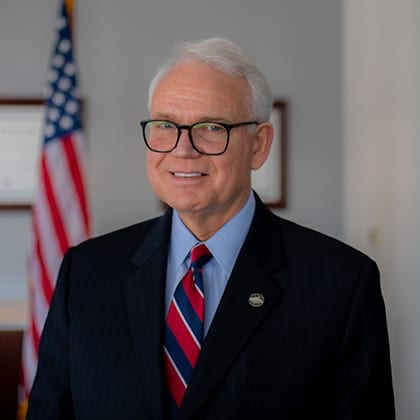Published on April 18, 2018
Originally published in the Deseret News.
Local caucus meetings are over, party conventions are here and the midterm election is in November. Conventional wisdom — or at least voter turnout — suggests midterms are less important and less exciting than national elections — but they promise to have more impact on our daily life than the election of a president.
In today’s contentious political climate, Americans are showing their doubts about the solemnity of their vote. Utah has dropped to 39th nationally in voter participation, and the U.S. is falling behind other developed democracies as well. The question is: Why are Americans — and Utahns — increasingly less inclined to vote?
There is no dispute that Americans are dissatisfied with elected leadership, while at the same time less involved in electing that leadership. It can be argued that our concerns as a nation should be less about voter fraud and more about voter apathy.
Edmund Burke is attributed with saying, “The only thing necessary for the triumph of evil is for good (people) to do nothing.” More to our point, bad politicians are elected by good people who don’t vote.
Let’s also insist that the inverse of Burke’s statement is true: “The only thing necessary to defeat evil is for good people to do something.” Consider the direct impact of your November vote — on this and future generations.
The midterm will include decisions around a proposed tax increase — on you — to fund the education of your children and grandchildren, a Medicaid expansion effort in Utah, another look at the rules for how candidates get on the ballot in our state, a redistricting initiative, and the controversial effort that may open the door to marijuana in Utah.
There are also choices to be made on House and Senate seats and judges (including a state Supreme Court justice), as well as local and state school education boards. These are outcomes that will impact every resident of the state — and every vote matters.
Here is a local election example in support of the power of your vote: In one state House district in 2016, due to a high-profile presidential race, 85 percent of voters turned out to vote and yet the local winner was elected by a margin of less than 1 percent of votes cast and three votes overall.
Now factor in a Washington Times report of trending overall historic lows for voter turnout in Utah. Regardless of the reasons for the decline, the numbers say that when participation in a district drops from a presidential-year high of 85 percent to the new state average of less than 40 percent and at a 1 percent margin of victory, every single vote counts.
Voters must understand that we are, in our frustration or disinterest, abdicating decisions to fewer and fewer voices in Utah — decisions we were all meant to share in. Decisions about tax increases, medical care and the eventuality of some form of access to marijuana should be decided by all of us.
In keeping with this message of empowerment, keep in mind that when it comes to much-publicized ballot initiatives, the rules give voters power even now, during this preliminary stage, as organizers work to get their initiatives on the November ballot. In Utah, in order to get an initiative on the ballot, an effort must meet signature thresholds in 26 of 29 state Senate districts. That means four districts — of any size — can put a stop to a ballot initiative.
Local communities are among the very last places where democracy can still work to its fullest potential. Confidence in the future of our democratic republic should be found at the community level. It is vitally important that we do not allow our frustration with national politics, or any of the opinions we entertain about a “one-party state,” to silence our individual voices. We can all adopt the mantra that “the only thing necessary to defeat evil is for good people to do something.” That “something” is as simple as educating yourself on the issues and candidates and voting in November.
More Insights
Related Articles
Ignoring the text of the Constitution is a mistake
A written Constitution is entirely superfluous if the document is simply meant to give the people what they want.
What you need to know about election integrity
It should be easy to vote and hard to cheat. This oft-quoted phrase has been articulated as a guiding principle by many elected officials wading into voting and election policy debates in recent years. So why has this issue been so contentious, and what’s the solution?
How transparent are school districts about curriculum?
Utah districts don’t need to wait for legislation to be transparent – many have sought to be transparent on their own. District leaders interested in this reform can do several things right away.
Connect with Sutherland Institute
Join Our Donor Network
Sed ut perspiciatis unde omnis iste natus error sit voluptatem accusantium doloremque
Follow Us
Sed ut perspiciatis unde omnis iste natus error sit voluptatem accusantium doloremque



